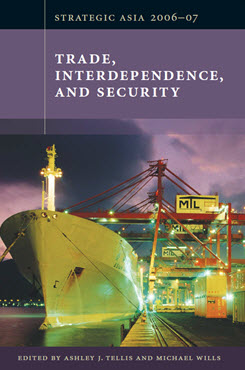South Korea's Embrace of Interdependence in Pursuit of Security
This chapter analyzes the current and future impact of South Korea’s growing trade and economic interdependence for ROK security and relations in Northeast Asia.
EXECUTIVE SUMMARY
This chapter analyzes the current and future impact of South Korea’s growing trade and economic interdependence for ROK security and relations in Northeast Asia.
MAIN ARGUMENT
- South Korea’s commitment over the past decade to a strategy of interdependence and engagement with North Korea constitutes a fundamental shift in South Korea’s foreign policy strategy.
- South Korea’s economic development has depended upon significant engagement with the regional and global economies – an engagement that has increased during the past decade.
- South Korea’s priorities are regional, and the ROK is primarily concerned with national reconciliation with the DPRK. This preoccupation stands in contrast to the global concerns of the U.S., which sets policy in East Asia as an extension of U.S. national security policies.
POLICY IMPLICATIONS
- The younger generation in South Korea is increasingly influential in policymaking circles. Washington will benefit from recognizing and preparing to work with – rather than against – this emerging elite.
- U.S. and ROK goals and policies toward the DPRK are likely to continue to diverge. China’s clear preference for engagement with North Korea means that Washington faces a difficult choice: either continue following a restrained containment policy that risks achieving no progress on the peninsula or change directions to engage the North – a course that also appears unlikely.
- South Korea’s support for the U.S. operation in Iraq, cooperation on trade and other regional issues, and common values such as democracy and capitalism form the basis of the U.S.-ROK alliance. Perhaps most importantly, the successful creation of a U.S.-ROK Free Trade Agreement could both strengthen the alliance and the U.S. presence in Northeast Asia.
Strategic Asia
The Strategic Asia annual edited volume incorporates assessments of economic, political, and military trends and focuses on the strategies that drive policy in the region. Learn more about Strategic Asia.


